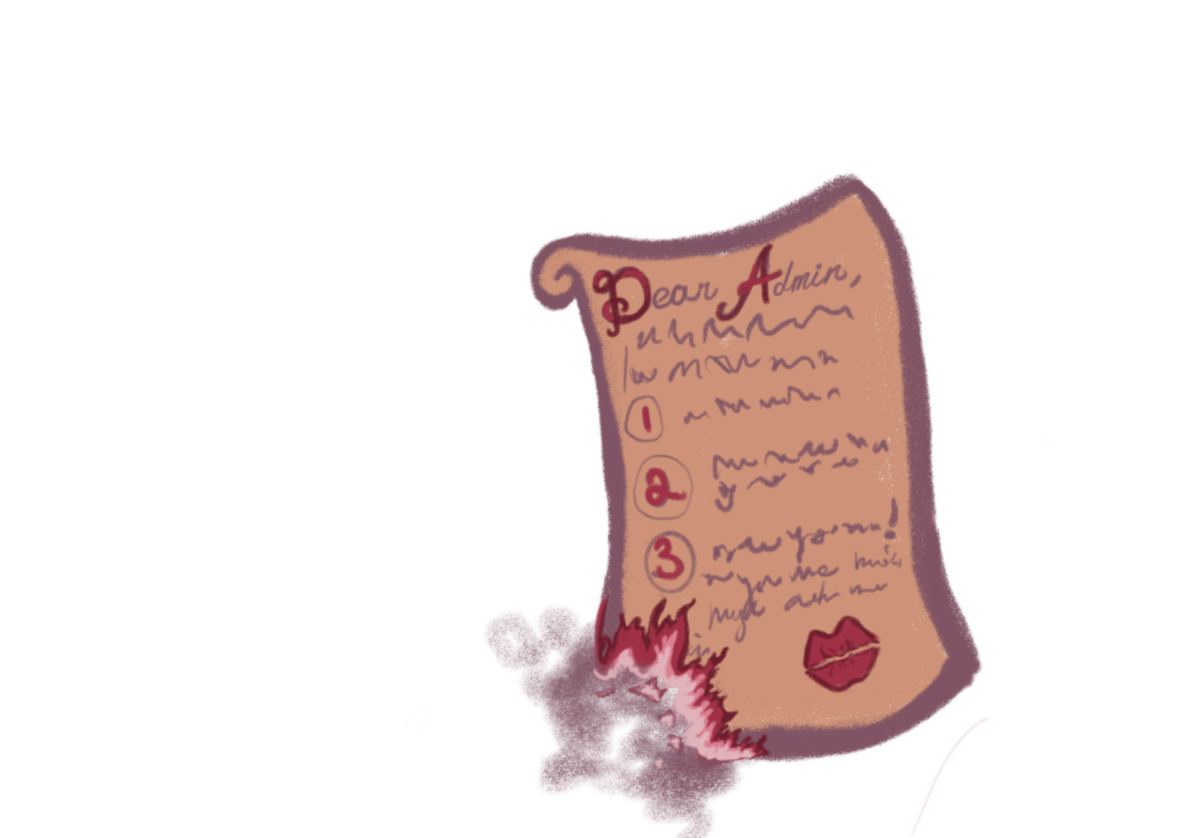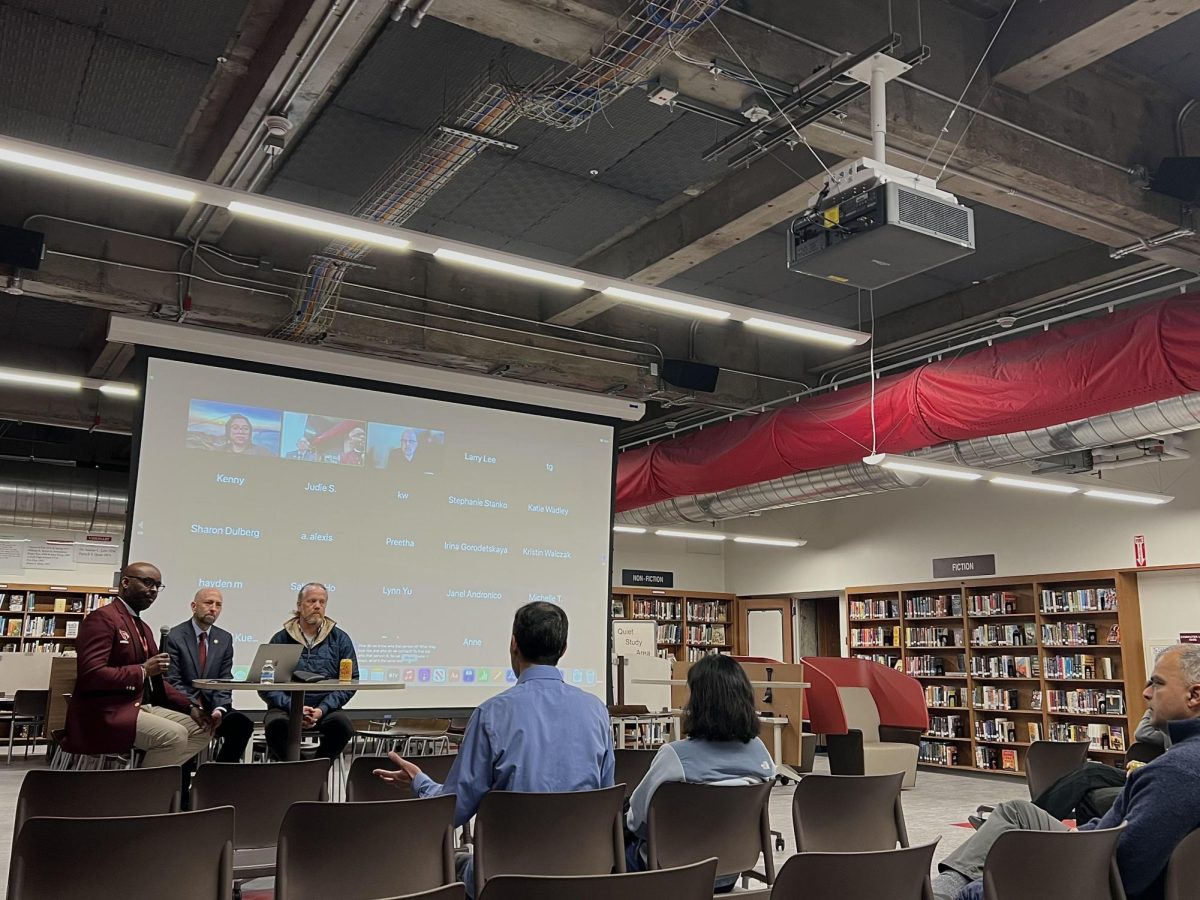By Rayming Liang
Originally published on October 21, 2014
With the Common Core State Standards and the Next Generation Science Standards taking shape, the school faces several curriculum design costs and benefits in math, English and science.
“Now, it’s no longer just looking at a graph and saying what the slope is — it’s also about explaining what the coordinates mean.”
Math classes see changes to course titles and curriculum and greater focus on group work. English classes receive less apparent changes, but will incorporate nonfiction materials and a system of cycling through four distinct writing styles that repeats each year. For science, there is a greater focus on practicing the scientific inquiry, the process of questioning, testing and explaining science concepts. As for testing, the Smarter Balanced Assessment, an online test that focuses on free-response questions, replaces the STAR Test that had focused instead on multiple choice.
The Common Core State Standards
To start with, Common Core seeks to integrate critical thinking into curriculums, as well as creating shared standards between states to make sure all American students are ready for college and work, according to the Common Core Web site. Although California adopted the standards in August 2010, most states began using Common Core in 2009. It requires all participating schools to follow their guidelines, but teachers decide on curriculum to meet the standards.
Math
In terms of math, Common Core has developed course-by-course content standards for Algebra 1 and 2 and Geometry. There are also eight mathematical practices, which are skills designed to assist students with solving math problems such as modeling problems in real life. “The old standards only told what students were to know, but did not include how students were to accomplish mathematical practices,” math teacher Lisa Hong said. “Common Core does both.”
Common Core prefers teaching students by group work rather than lecturing to allow students to figure out the reasoning and steps on their own. Instead of explaining to students how to derive a formula, teachers ask students to talk with one another and ‘discover’ the formula themselves. Common Core also focuses on deeper analysis of mathematical problems. “Now, it’s no longer just looking at a graph and saying what the slope is — it’s also about explaining what the coordinates mean, as well as what the slope represents in a real-life situation,” Hong said.
However, Lowell still has issues to resolve in implementing the standards, including some major changes for algebra and geometry classes. “Common Core implies that it will get rid of all honors,” Hong said. “This may mean that all students will be learning at the same level of difficulty.”
This change poses a problem, as Common Core only addresses the core concepts of math and not the more advanced topics that Lowell math courses currently cover. “They spend so much time working on the standards from the bottom up that we don’t have time to work on the more advanced topics at the top,” math teacher Tom Chan said.
Currently, the only honors class that will remain unaffected will be Pre-Calculus, since students only need Algebra 1 and 2 and Geometry to graduate high school, according to Hong. However, Lowell plans to fight for its honor classes in the case that they are removed. “We are trying to get the Parent Teacher Student Association to notify parents, since it seems like the School District listens to the parents more,” Chan said.
Furthermore, there is no new textbook adopted for the Common Core yet. “This means we need to make photocopies of the curriculum, which are mostly worksheets, given by the District,” Hong said. “This costs money and time.”
“It is a valuable skill to know, being able to look at nonfiction and forming your own opinions and educated conclusions.”
English
As for English, Common Core encourages the use of more nonfiction literary works, such as news articles and speeches. “The literature we teach can come to life when we show how it connects to real-world issues,” English teacher Jennifer Moffitt said.
Not only will studying nonfiction texts in school be useful in terms of understanding high school level literature, but also in terms of the future. “It is a valuable skill to know, being able to look at nonfiction and forming your own opinions and educated conclusions,” English teacher Bryan Ritter said. “It is also a majority of what students will see for the rest of their lives.”
Furthermore, Common Core focuses on four types of writing: narrative, informative, argument and research. These types of writing are known as ‘spirals’ since they are taught every year during students’ academic careers. “I think it’s a silly term, but a good idea,” Moffitt said. “It means you don’t just learn a form of writing once, but develop it further as the years go on.”
As for implementation, some teachers don’t foresee any change to their curriculum. “I have always been teaching the Common Core,” Ritter said. “It has only been recently called that.”
The NGSS and the Science Classes
In addition to the new math and English standards, standards in science will also change. The Next Generation Science Standards, adopted by California in September 2013, focus on science practices, such as having students design and carry out their own experiments with guidance, and noticing patterns in concepts, such as the different relationships in the periodic table. “It used to be that the standards would say ‘students need to know’ and then insert a fact,” science teacher Katrina Rotter said. “Now, instead of just giving students a list of facts, students need to delve deeper into the concepts.”
While still relatively new, integration of the NGSS into science classes have already begun. “We are still in the ‘discovery’ stage, where we are exploring and learning the standards, as well as developing ideas to use in the classroom,” Rotter said. “For me, I switched from disconnected assignments to scientific notebooking, which requires more writing and reflection on concepts, as well as argumentation.”
“Now, only the juniors are being tested while the other three [grades] are in class.”
With these new standards also comes some conflict, such as changes to how contents are being taught. “The NGSS does not require the teaching of certain concepts, like weak acids and bases, which could affect how prepared kids are for AP courses,” Rotter said.
On top of that, a common textbook is still in development. “There won’t be one, since there is no set teaching progression yet,” Rotter said. “We don’t know what the courses will look like.”
Testing
Along with new standards comes the Smarter Balanced Assessment, the new test that will replace the STAR test. “It will be online and reflects the Common Core standards,” Giles said. “Instead of picking from multiple choice, students now need to explain how they got their answer, and prove it.”
New computers and a stronger Wi-Fi signal will be needed for the assessment, which will now incorporate some free-response questions for students in math and English to show understanding of Common Core standards. Previously, the seniors would have the day off while the other three grades would be tested, according to Giles. “Now, only the juniors are being tested while the other three are in class. We have considered conducting the tests during the English and math classes of the juniors, which will not disrupt normal schedules,” she added. Other details will also have to be worked out, such as fixing “dead zones” in classes where Wi-Fi might not work.
With Common Core still in its piloting stage, stricter enforcement of these standards will begin next year, while the incorporation of standards in social studies remains to be determined.












